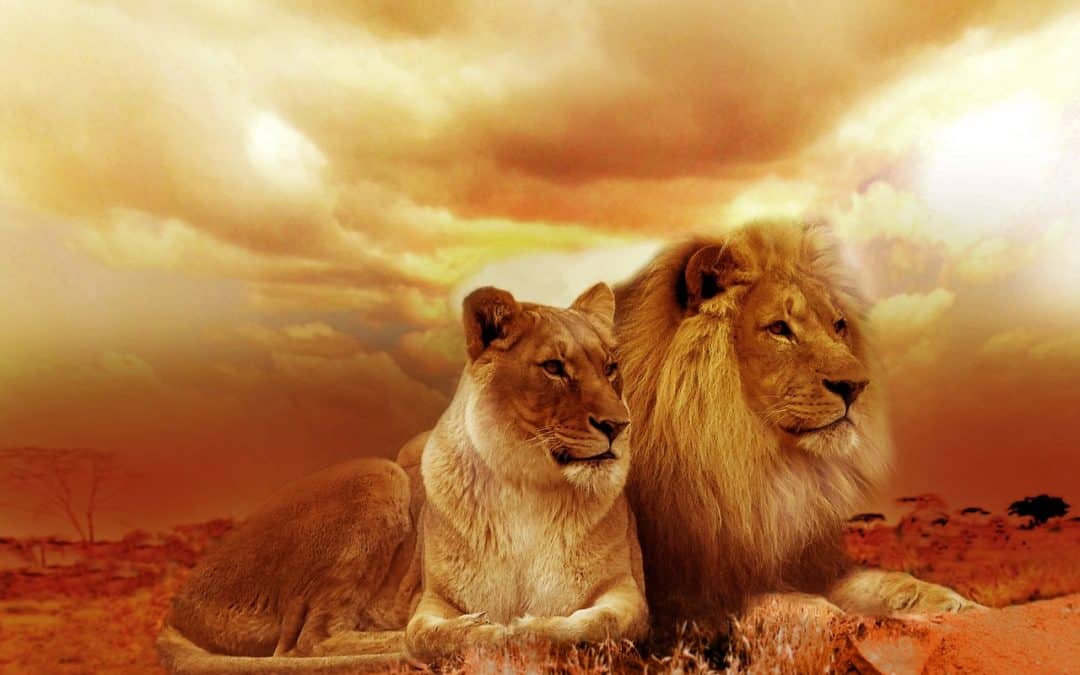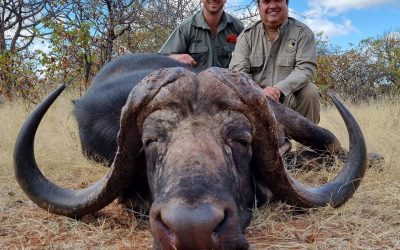So you’re an adventurous soul, eager to explore the wild African savannahs and embark on a hunting expedition. But you wonder, can you do it without a guide by your side? Well, the answer isn’t as simple as a yes or no. Hunting in Africa is a thrilling experience, but it comes with a myriad of regulations, permits, and safety considerations. In this article, we’ll take a closer look at the ins and outs of hunting without a guide in Africa, exploring the challenges, risks, and legal aspects that you need to be aware of before venturing into the untamed wilderness. Let’s dive in and unravel this intriguing question: Can you hunt without a guide in Africa?
Legal requirements for hunting in Africa
Importance of understanding local hunting regulations
When planning a hunting trip to Africa, it is crucial to familiarize yourself with the local hunting regulations. Each country within Africa has its own unique set of laws and requirements when it comes to hunting. By understanding and adhering to these regulations, you can ensure that your hunting experience is legal and ethical. It is important to note that hunting without following these regulations can result in severe penalties, including fines and even imprisonment.
Necessity of obtaining required permits and licenses
One of the fundamental legal requirements for hunting in Africa is obtaining the necessary permits and licenses. These permits and licenses vary depending on the country and the specific species you intend to hunt. They are typically issued by the local wildlife authorities and may involve an application process, verifications, and fees. It is essential to research and understand the licensing procedures well in advance of your trip to ensure a smooth hunting experience.
Types of hunting that may require a guide
While it is possible to hunt without a guide in certain situations, there are instances where having a guide is not only beneficial but also legally required. Dangerous game hunting, such as hunting lions, elephants, or Cape buffalo, for example, is often regulated and necessitates the presence of a licensed professional hunter or guide. This is primarily done to ensure the safety of both the hunter and the wildlife.
Restrictions on hunting certain species without a guide
It is essential to note that some countries in Africa have restrictions on hunting certain species without the assistance of a guide or professional hunter. These restrictions are put in place to protect endangered or vulnerable species and to promote sustainable hunting practices. It is imperative to research local laws and regulations to determine which species you can hunt independently and which require the accompaniment of a qualified guide.
Benefits of hunting with a guide
Enhanced safety and security
Hunting in Africa can be a thrilling adventure, but it also presents certain risks and challenges. Having a guide by your side enhances safety and security, as they possess valuable knowledge and experience in navigating the terrain and dealing with any potential dangers. They can provide guidance on wild animal behavior, first aid in case of emergencies, and help mitigate any potential risks that may arise during the hunting expedition.
Knowledge and expertise of local guides
Local guides in Africa possess invaluable knowledge and expertise about the local flora, fauna, and hunting techniques. They have spent their lives in these environments and have an intimate understanding of the behavior, habits, and movements of wildlife. This knowledge can greatly increase your chances of a successful hunt, as well as provide you with insights into the natural environment and ecosystem.
Access to prime hunting locations
One of the significant benefits of hiring a guide is the access they provide to prime hunting locations. These guides possess exclusive knowledge of the best areas for hunting specific species, ensuring that you have the maximum opportunity to track and encounter your desired game. Their familiarity with the terrain, water sources, and migration patterns of animals can greatly enhance your hunting experience.
Increased chances of a successful hunt
A hunting guide can significantly increase your chances of a successful hunt. They understand animal behavior, including calling techniques, scouting, and tracking methods, making it more likely to locate and approach your desired game. They also have an understanding of the best time and season for hunting specific species, increasing the likelihood of a successful harvest.
Opportunity to learn about wildlife and the environment
Hunting with a guide also provides a unique opportunity to learn about wildlife and the environment in Africa. Guides often possess a wealth of knowledge regarding various species, their ecological importance, and conservation efforts. They can educate you on the local flora and fauna, habitats, and the challenges faced by wildlife in the region. This firsthand experience can deepen your appreciation for the natural world and foster a sense of conservation and respect for the environment.
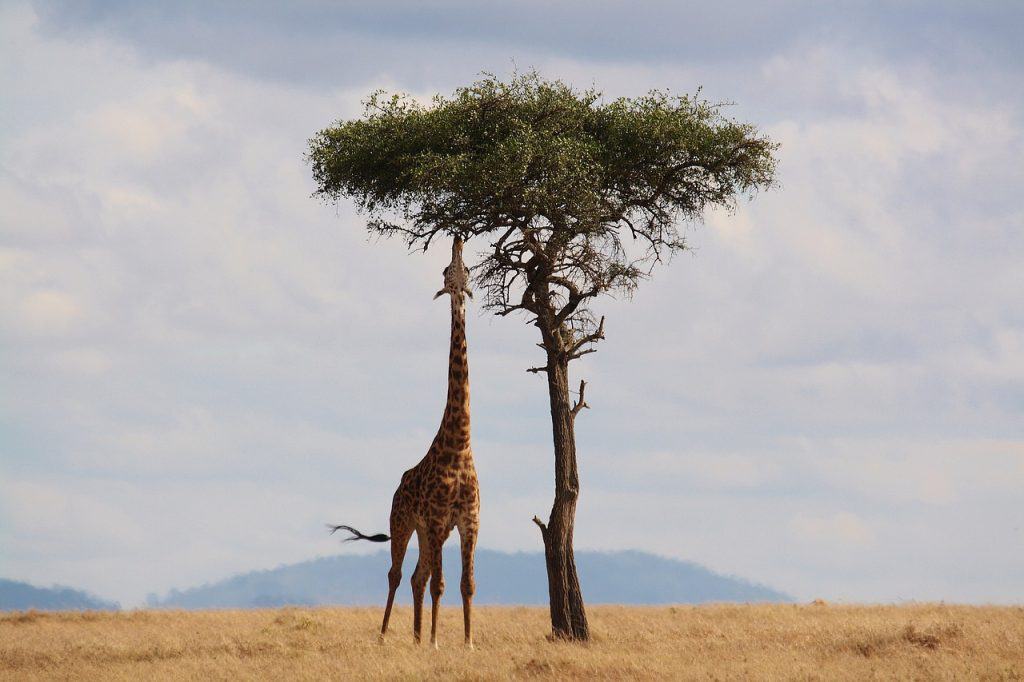
Considerations for hunting without a guide
Experience and skill level of the hunter
Hunting without a guide requires a certain level of experience and skill. It is important to assess your own capabilities and determine whether you possess the necessary hunting skills and knowledge to navigate and hunt successfully in unfamiliar territory. Being self-sufficient in wilderness survival, tracking, and shot placement is crucial when hunting without a guide.
Familiarity with the hunting terrain
When considering hunting without a guide, it is essential to be familiar with the hunting terrain. Understanding the topography, vegetation, water sources, and animal migration patterns can significantly increase your chances of a successful hunt. Without this familiarity, it may be challenging to navigate and locate the desired game efficiently.
Risk assessment and contingency planning
Hunting without a guide requires careful risk assessment and contingency planning. Without the expertise of a guide, you must be prepared to handle various situations, including emergencies, medical situations, and encounters with dangerous wildlife. Having a well-thought-out plan and necessary equipment, such as first aid kits, communication devices, and emergency contacts, is crucial for ensuring personal safety.
Availability of local resources and support
Before deciding to hunt without a guide, it is important to consider the availability of local resources and support. This includes access to emergency services, nearby towns or villages, and knowledgeable locals who can provide assistance if needed. Being aware of the availability of these resources can be crucial in maintaining your safety and preparedness during the hunting expedition.
Potential language and cultural barriers
Hunting without a guide may also present language and cultural barriers. Communicating with local communities, obtaining permits, and understanding hunting regulations may be challenging without a guide who can act as an interpreter or provide cultural context. It is essential to assess your ability to navigate potential language and cultural barriers before embarking on a hunting trip without a guide.
Selecting the right guide for a hunting trip
Researching reputable hunting outfitters or guides
When selecting a guide for your hunting trip, thorough research is essential. Start by seeking out reputable hunting outfitters or guides who have a proven track record of providing quality services. Look for testimonials, reviews, and recommendations from previous clients to gauge the reliability and professionalism of the guide.
Checking for licenses and certifications
Verify that the potential guide possesses the necessary licenses and certifications required to operate legally. This ensures that they have met the required standards and have undergone the appropriate training and qualifications. Requesting proof of these licenses and certifications is a crucial step in selecting a guide who adheres to legal and ethical hunting practices.
Reading reviews and seeking recommendations
Reading reviews and seeking recommendations from other hunters who have used the services of the guide can provide valuable insights into their capabilities and the overall experience they provide. Positive reviews and recommendations from experienced hunters can serve as indicators of the guide’s expertise, professionalism, and client satisfaction.
Meeting or communicating with potential guides
It is advisable to meet or communicate with potential guides before finalizing your decision. Engaging in personal conversations or interviews can provide an opportunity to ask questions, discuss expectations, and assess the guide’s knowledge, communication skills, and compatibility. Building a rapport and establishing clear communication is vital for a successful hunting trip.
Discussing expectations and preferences
Prior to confirming your choice of guide, have a detailed discussion regarding your expectations and preferences. This includes discussing the desired game species, hunting methods, equipment, accommodations, and any specific dietary or medical requirements. Clear communication ensures that both you and the guide are aligned in terms of objectives and can maximize the hunting experience.
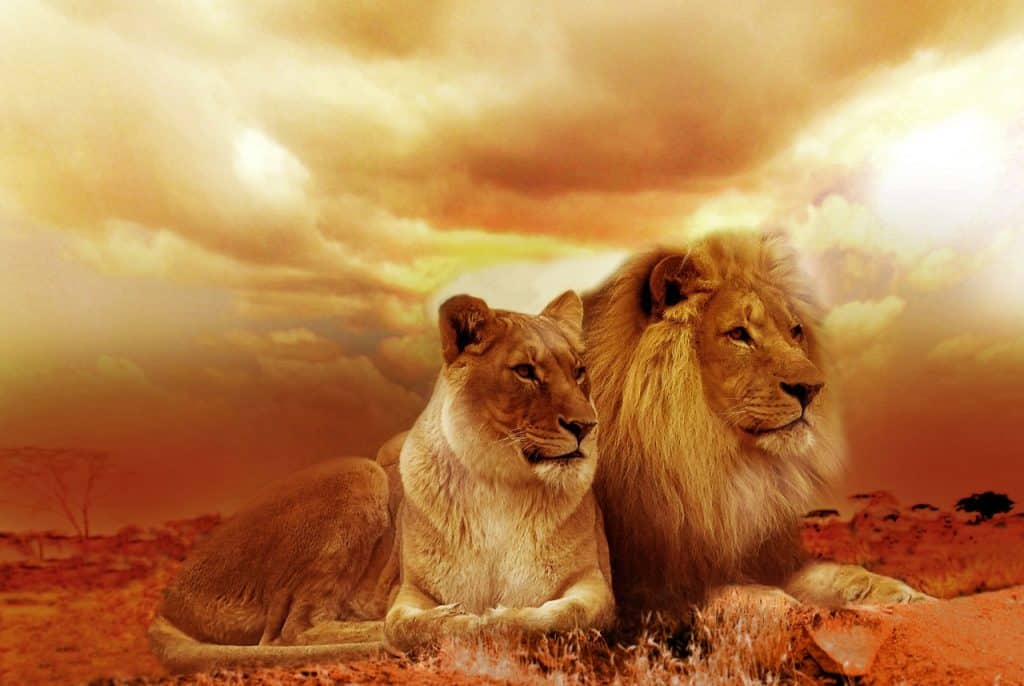
Alternatives to guided hunting
Hunting on private game ranches
An alternative to guided hunting in Africa is hunting on private game ranches. These ranches typically offer hunting opportunities within an enclosed area, often with a greater assurance of successful hunting. Private game ranches often have guides or professional hunters available for hire, providing a level of assistance and support while still allowing for a more independent hunting experience.
Participating in hunting safaris
Joining a hunting safari can be an alternative to hunting without a guide. Hunting safaris typically provide a combination of guided hunts and independent excursions, offering the best of both worlds. This option allows you to experience the expertise and knowledge of a guide while also having the freedom to explore and hunt independently during certain portions of the trip.
Joining hunting clubs or associations
Joining hunting clubs or associations can be another way to enhance your hunting experience without the need for a guide. These organizations often provide resources, networking opportunities, and access to hunting areas. Connecting with experienced hunters who are members of these clubs or associations can provide valuable advice and guidance for hunting in Africa.
Engaging local trackers or professional hunters
If the idea of hunting without a guide is appealing, but you still desire some level of assistance, engaging local trackers or professional hunters can be a viable option. These individuals possess extensive knowledge of the local terrain, wildlife behavior, and hunting techniques. Their expertise can greatly enhance your hunting experience while allowing you to maintain a higher level of independence.
Cost considerations for hunting in Africa
Guide fees, daily rates, and trophy fees
When hunting with a guide in Africa, various costs must be taken into consideration. These include guide fees, which are typically charged on a daily basis, as well as additional trophy fees for each animal harvested. The rates for guides and trophy fees can vary depending on the species, the location, and the level of expertise provided by the guide.
Accommodation, transportation, and meals
In addition to guide fees, it is important to factor in the costs of accommodation, transportation, and meals. Depending on your preferences, these expenses can range from basic camping arrangements to luxurious lodges. Transportation costs may include flights within Africa, airport transfers, and ground transportation during the hunting trip. Meals can be provided by the outfitter or may require additional expenses if dining at local establishments.
Equipment and gear rental or purchase
Another cost consideration is the equipment and gear required for hunting in Africa. This includes firearms, ammunition, optics, camping gear, and clothing suitable for various weather conditions. Depending on your needs and preferences, equipment and gear can be rented or purchased. Renting can be a cost-effective option for those who do not wish to invest in their own hunting equipment.
Additional expenses for taxidermy or trophy shipment
If you plan to have your harvested animals mounted or shipped back home, it is important to account for the additional expenses associated with taxidermy and trophy shipment. Taxidermy costs can vary depending on the size and complexity of the mount, while trophy shipment costs will depend on the destination and the specific requirements for international transportation.
Gratuities and tipping for guides and staff
Lastly, it is customary to provide gratuities and tips for guides and staff who have provided exceptional service during your hunting trip. This may include guides, trackers, camp staff, and other support personnel. It is important to research local customs and norms regarding tipping, as practices can vary between countries and regions.
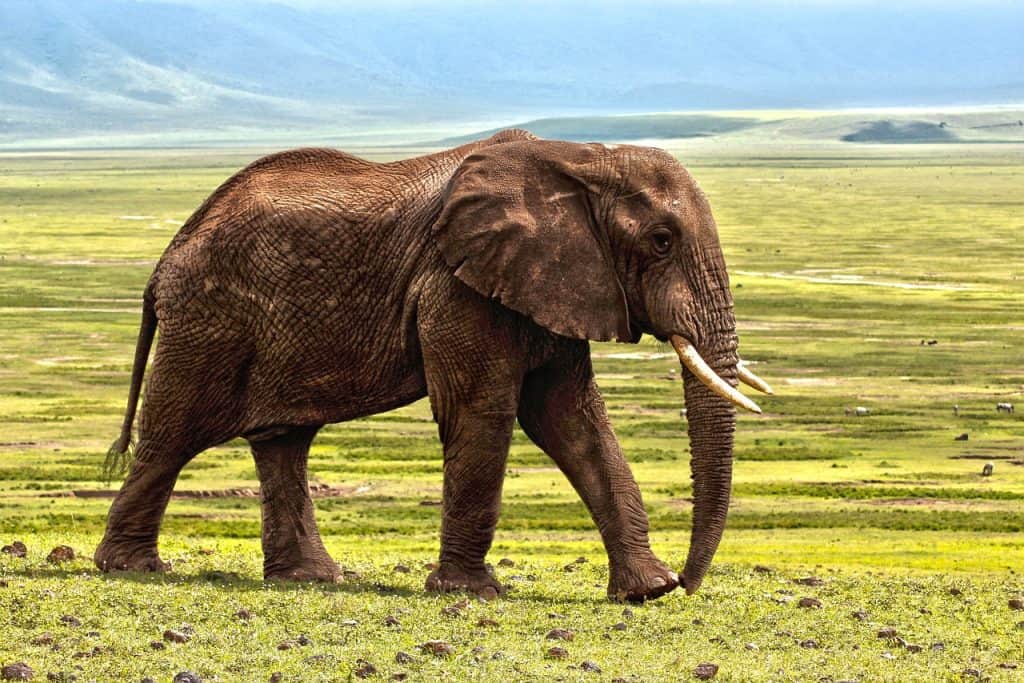
Ethical and conservation aspects of hunting without a guide
Supporting sustainable hunting practices
Hunting without a guide can still support sustainable hunting practices if approached responsibly. It is crucial to abide by local hunting regulations, including bag limits and species conservation requirements. Practicing selective harvesting, respecting animal welfare, and adhering to ethical hunting standards can contribute to the overall sustainability of hunting in Africa.
Respecting local traditions and customs
In hunting without a guide, understanding and respecting local traditions and customs is essential. This includes being mindful of cultural practices and beliefs related to hunting and wildlife. Engaging with local communities in a respectful manner and seeking opportunities to learn from their traditional knowledge can foster a deeper appreciation for the cultural heritage that surrounds hunting in Africa.
Contributing to wildlife conservation efforts
By hunting responsibly and adhering to ethical principles, hunters without guides can contribute to wildlife conservation efforts in Africa. Hunting can provide financial support for conservation initiatives through hunting fees and permits. Additionally, responsible hunters can actively engage in conservation programs, contribute to habitat preservation, and support local communities through sustainable hunting practices.
Promoting fair chase and ethical hunting standards
Hunting without a guide allows individuals to promote and uphold fair chase and ethical hunting standards. This involves giving animals a fair opportunity to escape, ensuring a humane harvest, and maintaining a respectful attitude towards the natural environment. By embodying these principles, hunters can champion responsible hunting practices and help mitigate negative perceptions surrounding hunting.
Mitigating negative impacts on local communities
When hunting without a guide, it is essential to consider the potential impacts on local communities. Involving local communities in sustainable hunting practices, supporting local businesses and services, and respecting customary land rights are crucial for fostering positive relationships and minimizing negative socio-economic impacts. By doing so, hunters can contribute to the well-being of local communities, promoting a harmonious coexistence between hunters and local populations.
Best practices and tips for hunting in Africa without a guide
Gaining knowledge of local flora and fauna
Hunting in Africa without a guide requires a deep understanding of the local flora and fauna. Take the time to familiarize yourself with the species you intend to hunt, their habitats, feeding patterns, and behaviors. This knowledge will help you effectively track and locate the desired game.
Understanding hunting seasons and bag limits
It is important to meticulously research and understand the hunting seasons and bag limits for the species you intend to hunt. These regulations are in place to protect wildlife populations and ensure sustainable hunting practices. Adhering to these restrictions demonstrates a commitment to conservation and responsible hunting.
Practice shooting skills and accuracy
Before embarking on a hunting trip without a guide, it is crucial to practice shooting skills and accuracy. Consistent marksmanship is vital to ensure a humane and ethical harvest. Regular practice at the shooting range or through simulated hunting scenarios can help improve your skills and boost your confidence in the field.
Carry essential survival and first aid equipment
Hunting without a guide requires self-sufficiency and preparedness for various situations. Carrying essential survival and first aid equipment is crucial for ensuring personal safety. Items such as a compass, map, emergency shelter, water purification tools, and comprehensive first aid kits should be included in your hunting gear.
Respecting wildlife and the natural environment
Respecting wildlife and the natural environment is fundamental when hunting without a guide. This includes minimizing disturbance to wildlife habitats, adhering to ethical hunting standards, and practicing responsible leave no trace principles. Preserve the environment for future generations of hunters by leaving nature undisturbed and respecting the balance of ecosystems.
Potential challenges and risks of hunting without a guide
Navigating unfamiliar territories and landscapes
Hunting without a guide can present challenges in navigating unfamiliar territories and landscapes. Without the guidance and knowledge of a local guide, it may be challenging to find optimal hunting areas, identify landmarks, or navigate safely. Proper preparation, including studying maps, planning routes, and utilizing navigational tools, is crucial in mitigating these challenges.
Encountering dangerous wildlife without proper guidance
A potential risk when hunting without a guide is encountering dangerous wildlife without the guidance of an experienced professional. African wildlife, such as lions, elephants, or buffalo, can pose significant threats to inexperienced hunters. Understanding animal behavior, practicing responsible distance management, and knowing how to handle encounters are vital in ensuring personal safety.
Dealing with emergencies or medical situations
When hunting without a guide, being prepared to handle emergencies or medical situations is of utmost importance. Without immediate access to professional medical assistance, it is important to have the necessary first aid skills and equipment to address potential injuries. Planning for emergency scenarios and ensuring proper communication devices are essential steps in ensuring a safe hunting experience.
Managing logistics and transportation logistics
Another challenge of hunting without a guide is managing logistics and transportation. This includes planning for transportation to and within the hunting area, organizing the movement and storage of equipment, and arranging accommodations. Proper planning and research beforehand can help alleviate logistical challenges and ensure a smooth hunting experience.
Handling legal implications and law enforcement
Hunting without a guide requires a thorough understanding of local hunting regulations and the legal implications of non-compliance. Without the guidance of a professional, it is essential to stay updated on any changes in regulations, maintain necessary permits, and comply with local law enforcement. Failure to do so can result in severe penalties and legal consequences.
Conclusion
Deciding whether to hunt with or without a guide in Africa is a personal choice that should be considered carefully. While hunting with a guide offers numerous benefits in terms of safety, expertise, and access to prime hunting locations, hunting without a guide can provide an opportunity for independence and self-reliance.
It is crucial to understand and abide by local hunting regulations, obtain the required permits and licenses, and familiarize yourself with the specific hunting terrain. Conduct thorough research on potential guides, or alternatively consider hunting on private game ranches, participating in hunting safaris, joining hunting clubs or associations, or engaging local trackers or professional hunters.
Factor in the various costs associated with hunting in Africa, such as guide fees, accommodation, equipment, and gratuities. Moreover, ensure ethical hunting practices, support wildlife conservation efforts, and respect local traditions and customs. Follow best practices, such as gaining knowledge of local flora and fauna, understanding hunting seasons and bag limits, practicing shooting skills, carrying essential survival and first aid equipment, and respecting wildlife and the natural environment.
While hunting without a guide presents potential challenges and risks, such as navigating unfamiliar territories, encountering dangerous wildlife, dealing with emergencies, managing logistics, and handling legal implications, it also offers an opportunity to balance independence and expertise, supporting responsible and informed decision-making based on personal preferences and circumstances.

